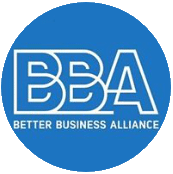This information contained in this blog is provided for general information purposes only and should not be construed as an endorsement or advice from GoDaddy or legal or tax advice Always consult an attorney or tax professional regarding your specific legal or tax situation.
Ready to say goodbye to the turbulence and uncertainty of the past year? You’re not alone. Like your fellow solopreneurs, 2020 most likely brought you a whole new set of challenges that tested the resiliency and fortitude that made you want to strike out on your own in the first place. And, if you decided to start your business this year, the challenges were even more extraordinary.
The fact that you’re reading this now is a good sign you weathered the storm, and hearty congratulations are in order. But, of course, you can’t rest on your laurels. You need to prepare for 2021. So, before the year ends, here are eight things solopreneurs must do now to be ready to take on the new year with a solid foundation.
1. The first thing solopreneurs must do: Review your business plan
Did you start your business with a carefully written and detailed business plan? If so, the end of the year is a great time to dust it off and see how your current business situation fits with the initial plans you had for your company’s growth. Most likely, your finances and marketing strategies have changed, and with the COVID-19 pandemic still affecting consumer markets, your customer challenges have probably changed as well.
Before the year is out, it would be smart to examine your business plan, see where you’ve diverged (and why), and make any needed adjustments so you can start next year in a stronger position.
Once you’ve gotten your feet wet, chances are you have a better idea of the strategies you need to embrace to grow your business. A business plan forces an entrepreneur to consider how to run all aspects of their company, including marketing, hiring, financial projections, and more.
It can also help you highlight potential problems, identify competitors, and prepare for the unexpected.
2. Write a disaster plan
Speaking of the unexpected, if the past year has taught businesses anything, it’s that we need to be ready to deal with a disaster no matter what form it takes.
Disasters come in all shapes and sizes, from cybersecurity issues and hurricanes to embezzlement and deadly viruses. The key to survival for business owners is to be ready with a plan, so business operations continue to function.
Start by making a list of potential risks and then imagine the impact they would have on your company. Keep in mind that even though it doesn’t directly hit your business specifically, you can still be affected.
As a solopreneur, you probably outsource or partner with other companies. What would you do if your resources suddenly dried up (as so many businesses experienced during the pandemic)?
Make sure when you plan your response to include a backup list of suppliers, and check with your business insurance agent to make sure you’re covered for any contingency.
To help plan for disasters, check out SCORE’s Small Business Resilience Hub for more resources and personalized mentoring.
3. Use end-of-year budgets

If you have money allocated for projects or expenses that you haven’t used yet, now’s the time to do so. Some business expenses (like purchasing new equipment) might be tax-deductible, so it’s in your best interest to take advantage of those budgets.
Not sure where to spend the money? Here are some excellent candidates for investment:
- Upgrade technology
- Buy social media ads
- Update office equipment or furniture
Was your business fortunate enough to receive economic disaster relief funding from the government, such as through the Payroll Protection Program (PPP) or the Economic Injury Disaster Loan Advance Grant? If so, remember, at least 75% of the disbursement must have been used to cover payroll costs and the remaining 25% used for qualifying expenses.
To receive loan forgiveness, borrowers will need to prove to their lenders the funds were used appropriately.
4. Review your accounts
Don’t wait until it’s time to file your taxes to clean up your accounts.
Log into your accounting software and make sure all your expenses are attributed correctly to the appropriate tax category (and that you have all of your costs accounted for).
Do you use tax preparation software or outsource to an accountant? Pay for the service before the year ends, and you can deduct the payment as a business expense.
You never know when you’ll be required to provide financial statements or a list of your vendor accounts, so it’s essential to use and be comfortable with your bookkeeping software program.
If you don’t have one, check out GoDaddy’s Online Bookkeeping before the end of the year to get organized.
5. Think about your business structure
If you never selected a business structure for your company, you’ve been operating as a sole proprietor. While that’s fine for some, it does put you and your personal assets at a greater risk.
In sole proprietorships, the owner is personally liable for the business’s debts and other liabilities.
You may want to consider changing structures to a corporation or Limited Liability Company (LLC) — both of which may separate your personal assets from those of the business and provide some streamlined tax benefits.
If you start the paperwork now and designate January 1 as your start date, you’ll begin the new year with a clean slate. It also acts as a benefit come tax time, as your entire year will fall under your corporate (or LLC) taxes. This way, you won’t have to file two partial tax returns.
To incorporate as a C Corp, you’ll be required to file Articles of Incorporation documents with the Secretary of State’s office in the business’s home state and pay any related fees. As a C Corp, you are also required to create and maintain bylaws, establish a board of directors, hold meetings regularly, and abide by other regulations to maintain good standing in your state.
The requirements to form an LLC are not as costly or complicated. You must file Articles of Organization with the Secretary of State’s office where the business is located and create an operating agreement. You are not required to file the operating agreement.
Related: Sole proprietorship? LLC? S-Corp? Know your business entity options
6. Makeover your website

In the past year, many business owners had to pivot to online sales and digital marketing as the world practiced “Safer-at-Home” protocols. The move required companies to up their web game, making sure their websites provided timely, useful information. Many also needed to add user-friendly technologies.
Ensure your website has a responsive design, meaning it’s easy to see and navigate on any device your customer uses, from desktops and laptops to smartphones and tablets.
Also, see how long it takes your website to load across all devices since slow loading times increase your bounce rate (visitors leaving).
Finally, get tips and advice about how to improve your ranking on search engines from a search engine optimization (SEO) expert, and make the necessary changes so consumers can find your website.
7. Consider hiring
As a solopreneur, you’ve been doing everything yourself, which limits your growth opportunities. The end of the year is an excellent time to analyze how your business can grow by hiring some help.
Hiring doesn’t mean you have to hire a full-time team. You have options, such as:
- Using independent contractors or freelancers
- Hiring part-time workers
- Bartering services with other small businesses
- Partnering with complementary businesses
- Outsourcing specific projects
Consult with your accountant and legal adviser to determine how much you can afford to spend. It’s crucial to stay on the right side of the law when it comes to hiring practices, qualifying independent contractors, and being in compliance with payroll tax regulations.
8. Assess past goals
Most likely, the goals you set for your business this year flew out the window when the pandemic threw everything off track. If so, you’re definitely not alone.
Still, there are important things solopreneurs must do to help ensure next year looks brighter, like reexamining your goals at year-end to see what direction you want to take your business in the new year.
Now that you have some experience navigating your business during a struggling economy and under restrictive guidelines, create a new set of goals and brainstorm ways to meet those goals under different scenarios. Being prepared to pivot to meet shifting customer needs and behaviors can help you achieve your goals.
And there you have it! By tackling these year-end tasks early, you’ll have more time for your business (and maybe your personal life) in the coming months, and you’ll start the new year ahead of the game.
The post 8 things solopreneurs must do to finish the year on the right track appeared first on GoDaddy Blog.




